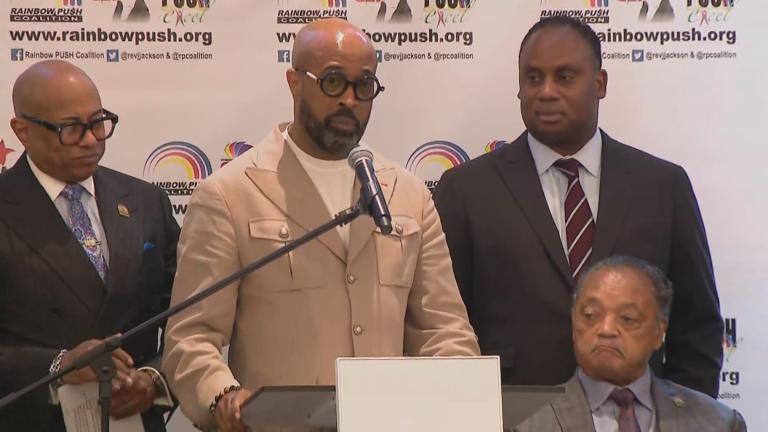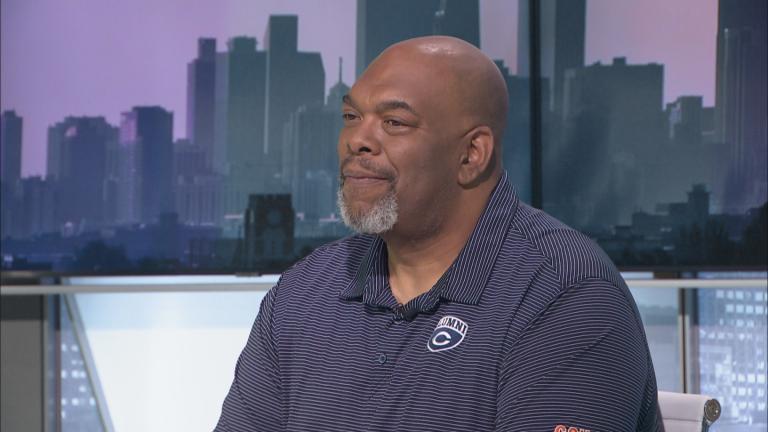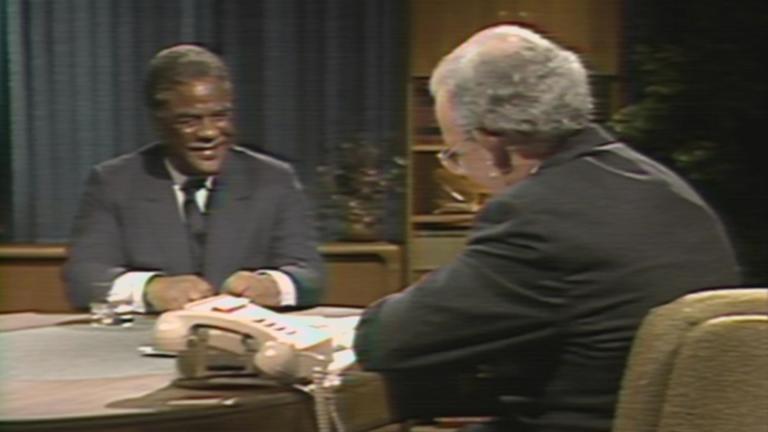In recent decades, Illinois has lost a significant portion of its Black population. While a variety of issues have been cited as reasons for Black families to leave the state, a recent study suggests financial equity could also be a consideration.
The study by consumer finance website WalletHub ranked Illinois the worst state in the nation for financial racial equity using data on employment levels, income share of executives and housing to make its assessments.
But Audra Wilson, president and CEO of the Shriver Center on Poverty Law, said it’s hardly a problem confined to Illinois.
“The fact of the matter is that the racial wealth gap is something that is talking about 400 years of economic disinvestment and subjugation, racially motivated policies that did not end with slavery,” Wilson said. “They did not even end with the ending of Jim Crow, which was in the mid-1960s. They still exist today in practice, and that is the reason why we’re still suffering. So we’re seeing the remnants of racial red lining and not being allowed to get access to home ownership and loans … still seeing a lack of economic investment. … Your zip code is determining basically your health outcomes and your educational outcomes. There is still active discrimination, and that is what continues to contribute to the racial wealth gap that we’re experiencing right now.”
Damon Jones, associate professor at the University of Chicago School of Public Policy, said while he doesn’t disagree with the study’s conclusions, the data collected on wealth and race in Illinois needs to be more robust.
“We don’t have data specific to Illinois for wealth in particular — we have data for the whole country,” Jones said. “And we know that there are huge wealth gaps. The median wealth of a White household is about 10 times as much as a Black household; on average, it’s about eight times as large. And so we can’t say specifically in this region what the wealth gap is, but those other measures are all things that are going to be related. And so it’s probably the case that the wealth gap is larger here, we probably would do better to collect that data and be better to assess that.”
When it comes to solutions, Lincoln Chandler, senior advisor for the Corporate Coalition of Chicago, said private entities must be part of the plan.
“Corporations do a lot of the hiring, they do a lot of the capital investment,” Chandler said. “So it seems implausible to think that we can close this gap without our corporations taking the lead and really being at the forefront of addressing some of these determinants of our wealth. About 90% of the hiring done is done by the private sector. If it’s about private investment, the bulk of that comes again from private dollars versus public dollars. Even when it comes to procurement, … a very small percentage of that spent is with Black-owned businesses. So across the board, I think corporations definitely have a role they can play.”
Wilson said public institutions also have a responsibility to create policy that will help shrink the gap.
“All of these institutions contributed in some way, shape or form to the gaps that we see today that persist,” Wilson said. “So whether you’re talking about banks, we’re talking about corporations, we’re talking about government-sanctioned discrimination, which has kept people … subjugated financially. Each and every one of these institutions is responsible. For example, in the city of Chicago, when we’re talking about property taxes that where one lives should not dictate the quality of education that they have nor should it dictate the quality of health options. So to be able to disentangle these sorts of things, to make sure we’re making investments in communities and places where people are most disadvantaged, separate and apart from our usual schemes of property tax and that sort of thing, I think it’s going to be really important.”
Given the nature of wealth-building, Jones points to a number of historically complicating factors for many Black families.
“Wealth is the type of thing that just compounds over your lifetime,” Jones said. “The less wealth you start out with, the harder it is to grow that wealth and then when you have children, you pass it on to the next generation. Those gaps are just going to grow over generations. You see a lot of studies in Chicago, for example, that find that Black households inherit less from their parents, they get less financial support for school and for buying their first home. And then they also are usually supporting other family members more. All those things make it harder to save up and build your own wealth. And then when they’re pursuing higher education, they … end up with more debt than their White counterparts as well. All of those are going to be headwinds when you’re trying to build wealth.”
Chandler said while employment rates are often discussed as a corrective for wealth gaps, it’s also important to consider whether those jobs offer opportunity for growth over time and paths to executive leadership.
“The status quo thinking is summer job programs and add-ons to the way of doing things,” Chandler said. “But one of the things we talk about a lot at the coalition is a notion of ‘business unusual’ and this is, rather than a pilot, it’s about really radically rethinking the way we hire. There’s a lot of work that we’re looking at in terms of fair-chance hiring. It’s called ‘second chance,’ but it’s really fair-chance hiring because in some cases, there was never a first chance. It’s about recognizing the barriers that persist, but are fixable, but it requires real effort and sustained effort. So we’re looking at looking beyond a one-time thing or a funded pilot, but something that really radically rethinks the way we hire.”
As reparations pilots make their way in municipalities across the country, Wilson said she doesn’t believe reparations are a solution for the future.
“If you’re not looking at the systems that still exist today, no matter how much money you’re giving to an individual, no matter how much money you’re investing in the community, if we’re not looking at fixing the systems — because again, these systems have been in place from the inception of slavery — then reparations really is meaningless,” Wilson said. “That’s the context in which we have to think about repairing more in terms of investments and allowing people to be on the pathway now to recover what they have lost over generations.”
Jones agreed that the underlying societal structures need to be dismantled for forward progress on the issue, but he also sees value in reparations paid to people who have suffered under decades of discriminatory practices that have limited their financial growth.
“We do want to fix the systems, and we also want to have this redress,” Jones said. “Like my father, he was born in 1945 in North Carolina. These long-term solutions are not going to affect him. And reparations is something that can give those people who had to endure racism throughout their lives some closure or some redress for what they went through. I don’t see them as mutually exclusive, and I agree we want to change the systems but also make some people whole who have lived their lives and been affected by racism.”








